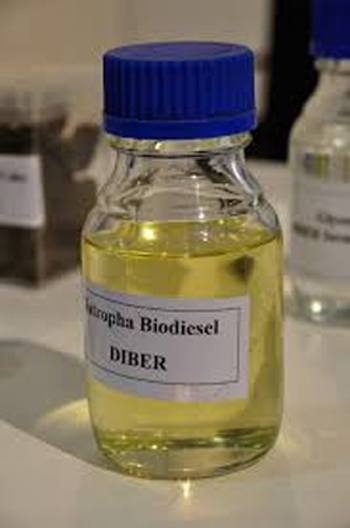Algal oil is a marine algal oil high in omega-3 fatty acids. In agriculture, certain algae species are produced expressly to create algal oil. Crypthecodinium, Schizochytrium, Nannochloropsis, Prototheca, and Ulkenia are some of the species that can be used to make it. The oil’s fatty acids may help with brain function and minimize swelling.
People use the oil to improve their cognitive abilities, athletic performance, ADHD, depression, autism, and a variety of other conditions, however there is no clear scientific evidence to back these claims.
Algal oil should not be confused with specific algae types such as brown algae, blue-green algae, laminaria, or chlorella. Also, it should not be confused with EPA or DHA from other sources, such as cod liver oil, fish oil, or krill oil. They are not the same.

Benefits of Algal Oil
Algae Cooking Oil
You've probably heard that fat is making a comeback. According to experts, national dietary guidelines aimed at reducing the volume of fat in our diets did more harm than good, and a diet rich in the correct fats can be incredibly healthy. It can be difficult to determine the proper fats. However, new study reveals that monounsaturated fatty acids (MUFAs) are one type associated with lower disease and mortality rates.
The makers of algae cooking oil are betting that this new focus on so-called "good fats" will drive health-conscious eaters their way. That's because of their remarkable fat composition.
Algae oil, as the name implies, is an oil extracted from algae. It has the appearance and feel of vegetable oil, canola oil, and other similar cooking oils.
The distinction is in its fat.
According to Peter Jones, director of the Richardson Center for Functional Foods and Nutraceuticals at the University of Manitoba in Canada, algal oil contains a higher amount of MUFAs and a lower saturated fat percentage compared to olive oil.
Algae Biofuel
Algae are already used in a variety of commercial applications, including nutritional supplements, sewage treatment, and coloring compounds. Algae as a sustainable raw material for biofuels is one of the most promising applications. Algae oil can be utilized directly (as raw vegetable oil esterified into biodiesel) or refined into a variety of biofuels, including renewable diesel and jet fuel, as well as other chemical elements for products such as cosmetics.
Algae carbohydrates (sugars) can be fermented to produce additional algae biofuel like ethanol and butanol, as well as other goods including polymers and biochemicals. Algae biomass can be utilized to produce pyrolysis oil or combined heat and power.
Renewable diesels and jet fuels generated from algae are drop-in fuels that substitute petroleum fuels without requiring engine modifications. They meet all of the standards for the petroleum fuel they are intended to replace.
Algae Advantages for Biofuels
Algae are biofuel resources that can be farmed on non-arable land utilizing saltwater or brackish water. One big advantage of using algae for biofuels is that it does not need the use of cropland for food production. According to the Department of Energy, algae have the potential to provide at least 30 times more energy than land-based crops currently used to produce biofuels.
Algae also effectively recycle carbon from the atmosphere. While algae account for less than 2% of the world’s plant carbon, they absorb and fix up to 50% of atmospheric CO2 (30 to 50 billion metric tons per year), converting it to organic carbon. They produce up to 50% of the world's oxygen through photosynthesis.
According to the Environmental Protection Agency, algal-based biodiesel produced through fatty acid methyl transesterification (the only type of algae biofuel modeled thus far) can lower greenhouse gas emissions by more than 60% when compared to petroleum diesel.
Algae Farm
An algae farm is where algae is farmed for commercial purposes. Algaculture refers to the practice of growing algae for food. Many different species of algae can be grown in algaculture.
The majority of commercially farmed algae are microalgae. These are also known as microphytes, phytoplankto, and planktonic algae. Seaweed is one of the largest algae species, sometimes known as macroalgae, and it has commercial uses. However, because of their bigger size and more exact growing conditions, macroalgae are more difficult to culture in a controlled setting.
Commercial algae farmed in algae farms are used for a variety of purposes, including food coloring, chemical feed, fertilizer, bioplastics, pollution management, pharmaceuticals, and fuel. Some types are also produced for human consumption or as nutritional supplements.
Algae Oil Benefits
Docosahexaenoic acid (DHA) and eicosapentaenoic acid (EPA) are found in algae oil (EPA). EPA and DHA are two omega-3 fatty acids of significance. Algal oil also contains omega-9 fatty acids, which are essential fatty acids. These fatty acids, when combined, have numerous health benefits.
Heart Health
They can benefit your heart. Algal oil's omega-3 fatty acids may aid to lower the risk of cardiovascular disease. EPA and DHA can help decrease blood pressure and triglycerides while also improving the function of your blood vessels.
Eye Health
They can help you keep your eyes healthy. Algal oil's omega-3 fatty acids may help decrease the rate at which your tears evaporate, alleviating symptoms of dry eyes. EPA and DHA can also aid in the relief of eye irritation in people who wear contacts or work in front of computers. The fatty acids may potentially aid in the prevention of age-related macular degeneration.
Anti-Inflammatory Properties
They have anti-inflammatory properties. Omega-3 fatty acids can assist to lessen pain and swelling associated with rheumatoid arthritis and other inflammatory disorders by reducing inflammation.
Relief from Depression
They can provide depression relief. While additional study is needed, several studies demonstrate that persons with depression notice a reduction in their symptoms when they consume more omega-3 fatty acids.
Healthy Baby
They have the ability to keep your infant healthy. EPA and DHA are essential for baby growth and development both before and after delivery. It is especially critical for nursing moms to consume extra EPA and DHA since their newborns acquire omega-3 fatty acids from breast milk. Some infant formulae contain algal oil to ensure that formula-fed newborns obtain enough vital fatty acids.





